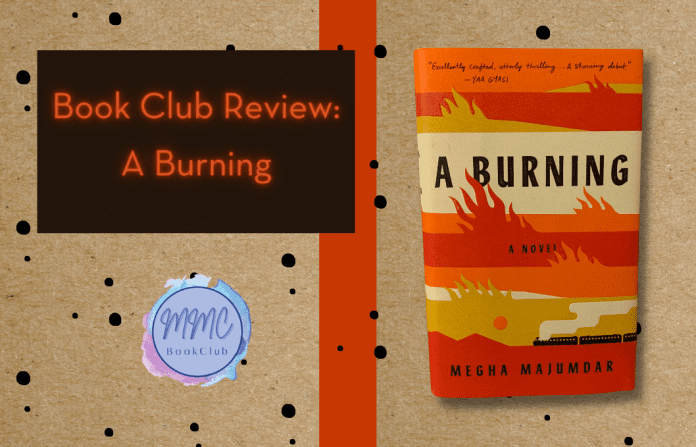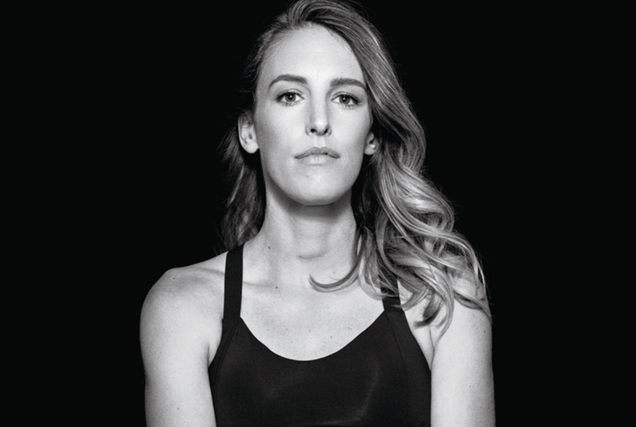
I had heard amazing things about A Burning by Megha Majumdar, and I purposely held off on reading it for a book club pick. Was it worth the wait?
Resoundingly, yes.
A Burning takes place in Kolkata, India and involves three main characters. They all intersect with one another in different ways. With a singular event that will impact all of them, they are forced to make decisions that will alter all their lives.
Jivan
Jivan is a Muslim girl who lives with her parents in a slum. She is employed and dreams of moving out of the poor neighborhood and her home; I hesitate to call it a home, as it is barely more than a shack without running water or normal necessities that we would take for granted. She is employed at a local store, and she loves to connect with people on Facebook.
This is where her problems begin, for she is accused of aiding in a terrorist attack on a train after she posts a comment on the event. Before she even knows what is happening, she is arrested and in jail. Her entire life turns upside down and in a system where it seems no one wants to listen to her, she pins her hopes on the student she tutors.
Lovely
Lovely is taking English lessons from Jivan. She is an aspiring actress, and she is a hijra.
I had to look this term up. In India, hijra are a third gender that is neither male nor female. In a case study by Harvard Divinity School titled, The Third Gender and Hijras, it states that the origination hijras can be traced back to Hindu holy texts and were patrons of both Hindu and Muslim rulers as far back at the 15th century. It states,
Hijras are often born male but look and dress in traditionally feminine ways. Many, but not all, choose to undergo a castration ceremony…as an offering to Hindu goddess Bahuchara Mata. Other hijras are born intersex…hijra identity is complex, and recently, some have identified as transgender and sought gender reassignment procedures.
Lovely calls herself a woman, and that is how we viewed her in the book. She is in love with a boy who cannot marry her and lives within a community of other hijra to learn their practices and cultures. She has an opportunity to help Jivan during her trial, but her acknowledgement of the alleged terrorist is a threat to her acting career.
PT Sir
Upon introduction, PT Sir is a dissatisfied gym teacher at the local girls school in Kolkata. He taught Jivan at the school and thought highly of her until one day, she left school; we later find out it was to take a job and help support her family. He is saddened to hear of her alleged involvement in the terrorist attack.
One day, his train is delayed, and he finds himself at a political rally for a right-wing candidate that speaks of hope and salvation to those living in poverty. He is enchanted by the group and finds himself working for the candidate, in both legal and illegal ways. Later in the book, he is asked to make Jivan’s mercy petition disappear in order to expedite her punishment. He must confront his own feelings in this ethical dilemma and weigh them against his own chance for success.
The underlying plot of A Burning is the ways that the impoverished and disenfranchised are continually put down and forced to work against one another in order to survive.We see this in the main characters and others. They betray one another in order to elevate themselves. They will lie about their friends, family, and strangers just to save their own skin or to earn respect or money.
It is a bleak world to live in that feels a little familiar.
In an interview with NPR, Megha Majumdar stated that, “the parallels between India and the U.S. are stunning…I hope that through this book, which, yes, is about oppression and systems of discrimination, I hope that people also do pay attention to how the characters in this book dream and make jokes and strive even in conditions of great oppression.” This book was released at the height of the Black Lives Matter protests in June 2020, and one cannot help but see some similar themes and pleas for civil and human rights between the two.
This book does not end happily, but it does not have to. It is heartbreaking but poignant in its parallels to real life and the realization that one comment – one mistake – can dramatically alter many lives.



 We hope you enjoyed this month’s book! Read
We hope you enjoyed this month’s book! Read 







